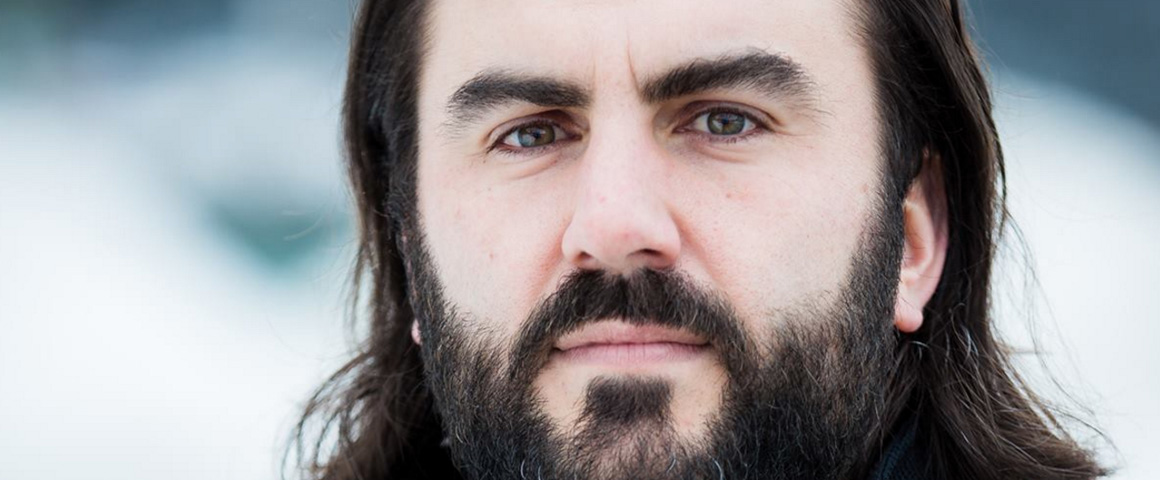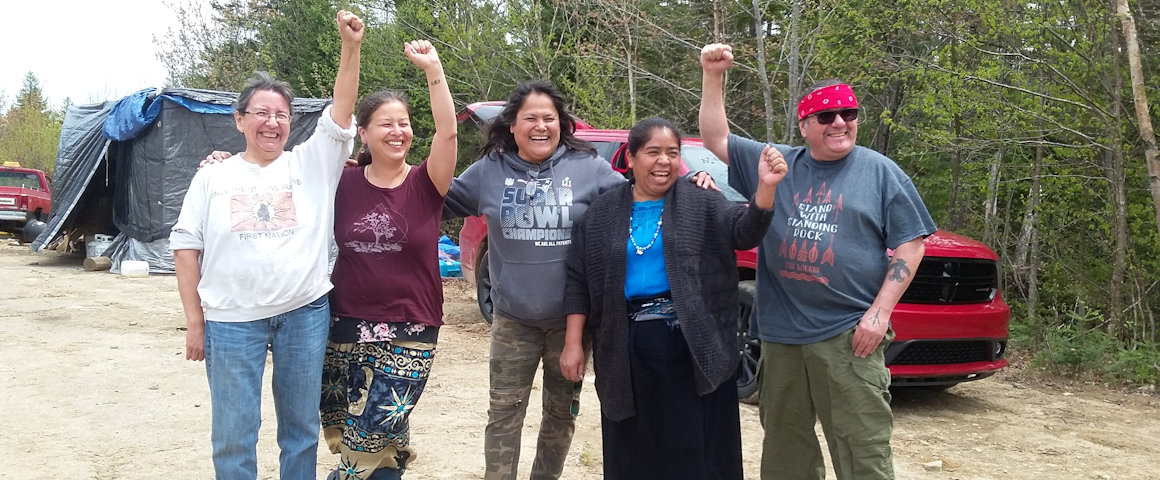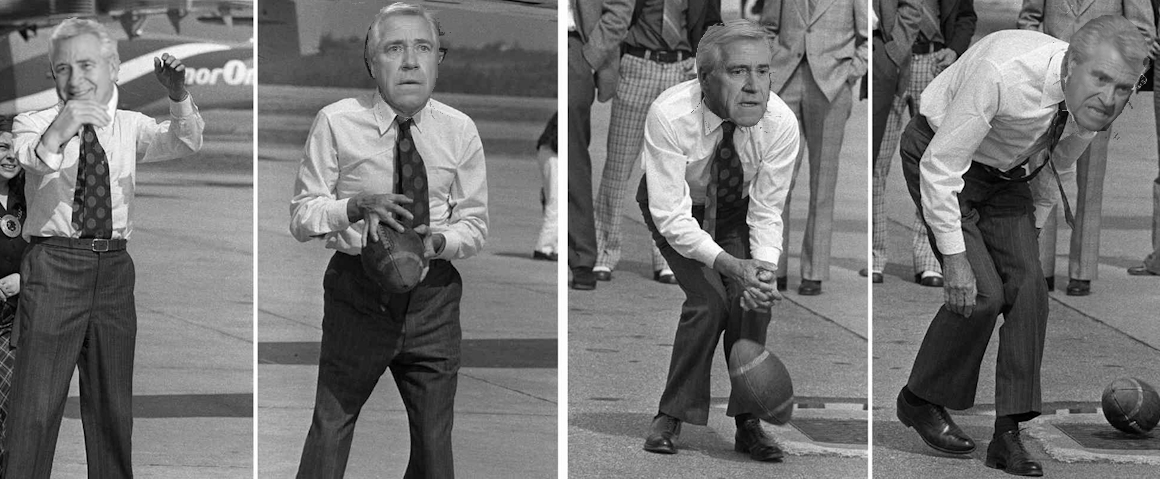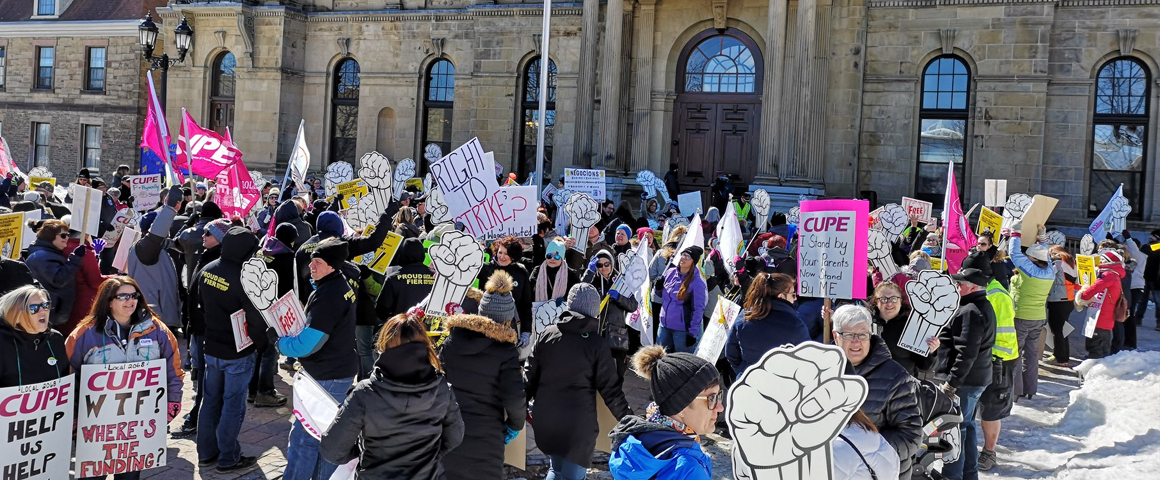About thirty people gathered in front of Corner Brook’s Sir Richard Squires Building on April 2 to show support for Justin Brake, a journalist for online publication the Independent, who is facing criminal charges from the RCMP over his coverage of protests in central Labrador last fall.
In October 2016, dozens of indigenous people representing Labrador’s Innu, Inuit, and Metis along with non-indigenous supporters, occupied the Muskrat Falls hydro plant construction site out of concern for the environmental and social impact of the project.
In the context of widespread aboriginal resistance to environmental exploitation and the struggle against colonization, Justin Brake decided this event was vital to be covered. Brake was in the thick of events at the site and followed the land protectors, as they came to be known, as they occupied offices of crown corporation Nalcor. His coverage of the events was live-streamed on the Independent’s social media pages and widely shared.
During the aftermath of the demonstrations, the provincial government placed a temporary hold on the project and met with some community leaders in an attempt to alleviate concerns, but the RCMP announced that it would press charges against a number of people at the site, including Brake. Twenty-eight people in all were charged in connection with violating a court order for protesters to stay off the site as well as “mischief over $5000”.
At the Corner Brook rally, Brake was defended by local CUPE representative Ernest Greene, Janice Kennedy of Provincial Action Network on the Status of Women, Sophia Descalzi of the Grenfell Campus Student Union, indigenous artist Melissa Tremblett, Mi’kmaq elder Calvin White, and Michael Martin, a former journalist, Labrador South MHA and creator of the Labrador flag. Martin characterized Canada today as undemocratic and ruled for the interests of rich oligarchs, and said that journalists like Justin Brake must be allowed to do what they do in order to combat social ignorance.
Brake emphasized that he did what any proper journalist should in order to get the story. In his words, “Canadians have a right to know in order to be informed citizens.”
The charges against Brake represent a disturbing precedent that can do great harm to journalism in this country. Indeed, comments from Nalcor’s lawyer get to the heart of the matter. At court proceedings in February, lawyer Chris King stated, “Journalists have no greater right to trespass on private property than any other individual and a journalist certainly has no greater right to defy a court order … than any other individual.”
If that is so, what is to stop similar arguments from being made against journalists in the future? How could a journalist even pursue a story like this if it means facing criminal charges? It is especially important to remember the context: this was an act of civil disobedience by aboriginal peoples in defence of their land and human rights against a crown corporation and provincial government that use Labrador as a colonial possession for its natural resources. That arrangement is hardly unique to Newfoundland and Labrador, and it is absolutely vital that everyone in this country be aware of the ongoing struggles of First Nations and Inuit if we truly believe in creating a more just society.
For his efforts, Brake was nominated for the province’s Human Rights Award in December 2016. Organizations such as Reporters Without Borders, the Canadian Association of Journalists and Canadian Journalists for Free Expression (CJFE) have voiced support, with CJFE director Tom Henheffer pointing out that considering the RCMP’s history of brutality towards indigenous protests, it is necessary for journalists to be on hand to observe.
A legal defence fund has been created to support Brake, who must travel to Labrador repeatedly for court appearances. The fund can be viewed at https://donorbox.org/the-independent-legal-defence-fund.




